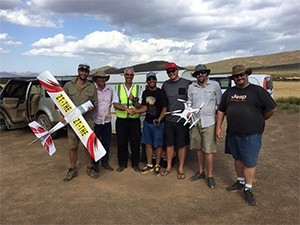
UAV Industries, a Western Cape-based drone pilot training centre, has released its first batch of 14 graduates.
These are the first certified, trained pilots who are authorised to fly drones in the region. There are only four training schools in SA.
The South African drone regulations came into effect in July and are among the most stringent in the world. The Department of Transport requires that acquiring a drone licence needs medical certification, certification of radiotelephony, English proficiency, flight training, and passing both a theoretical examination and skills test. The licence is valid for 24 months and applicants must be over 18 years old.
Law firm Michalsons says the drone law in SA is a very interesting and complex situation. The flying of drones in the South African airspace has been unregulated and essentially illegal. Initially, the South African Civil Aviation Authority (SACAA) responded by clamping down on drones already operating in the South African civil aviation airspace. But now, SACAA has formulated regulations to deal with this rapidly expanding industry.
"People think that drones are just good for Cape Town's booming film industry, but there are a wide diversity of industries that will need, and employ, certified drone pilots - agriculture, infrastructure, and utilities, for example," says Greg Donaldson, UAV Industries chief instructor.
"Anything that manned aviation does today that doesn't involve the transportation of passengers will be taken over by drones over the next five to 10 years, so there are huge opportunities for the industry. Things are moving incredibly quickly."
In December, UAV Industries received the certificate to train individuals as a remote training organisation under part 141 of the civil aviation regulations.
"Within the first week of January, we had a lot of interest from potential drone pilots and we've been working with mainly experienced model aeroplane flyers, converting them into legal drone pilots. In the first eight weeks, we've had over 50 people book through our courses and our first recruits are already certified and ready to earn," adds Donaldson.
"What we're offering through our training school is the ability to license the pilot and to get the equivalent, in manned aviation, of a commercial pilot's licence. There is a pre-on-site programme and then there are two weeks full-time on-site between the ground school and flight school, totalling three to four weeks."
Donaldson points out there is a lot of detail and requirements that are needed for people to understand the airspace in which they are operating.
Airmanship is crucial in flying a drone, he adds. "You can be the best radio control aircraft flyer, but you'll fail our course if you don't have situational awareness of not just the drone but the other users of the airspace around you - people on the ground, buildings, and property."
Share